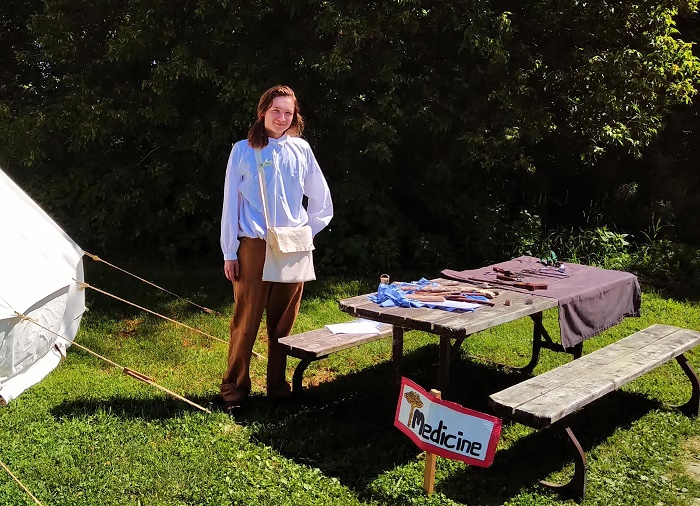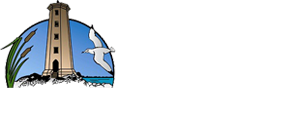New Discoveries: Reflections from my first summer at Presqu’ile Provincial Park
It can be said: you get out that what you put in. One need only look at a towering oak and its lattice of roots, pulling up water and nutrients to quench its verdant canopy; or maybe the steady munching of a Monarch caterpillar as it takes in just so much as to grow its wings. As a first-season naturalist at Presqu’ile Provincial Park’s Discovery department, I’ve come to watch and contemplate nature’s processes day in and day out. And yet, as I reflect on my summer at the park, I’ve come to wonder what I myself could have possibly put in to deserve the opportunity to work at a place which affords so many incredible chances for, well, discovery.
While the department brands itself on the wonders of discovery for visitors - those keen children eager to feed the frogs, those curious parents and grandparents ready to eek out meaning from our local biology - never does it cease to be a vehicle of learning for the staff that run its programs and centres. In the relatively short amount of time I’ve worked at Presqu’ile, I’ve learned more than I could have ever expected.
Of course working in Discovery acquaints you with a library of fun facts from my oft-repeated mention that our snowy owl taxidermy is in fact a centenarian, to the fact that a painted turtle’s gender is dependant on the outside temperature surrounding the developing egg. But this knowledge doesn’t just sit in the back of the mind like some old couch to be rotted and forgotten. That old saying rings true, and whatever knowledge I put into my brain has reappeared through the lens of interpretation. When you work in Discovery, you become a sort of sponge, soaking up knowledge, wiping out misunderstanding and ignorance, and leaving behind that eponymous sense of discovery.
But how do you do so? Well, by spending your mornings dressed in nineteenth century garb, discussing with visitors the in’s and out’s of an 1812 surgeon’s toolkit, resplendent with all manner of ghoulish devices and artefacts. By holding insect hunts, where visitors of all ages can grab a net and start catching. By tying knots, identifying plants and animals, seeking fossils, and working Presqu’ile’s visitor centres. Could I interpret even half of these topics before my June start? No - but over these last two months, I’ve learned just as much as I came to interpret.
These were, after all, the sorts of programs and activities I spent my summer doing. In this job, you learn quick. Especially when you spend so much time guiding visitors through Presqu’ile’s Nature and Lighthouse Interpretive Centres; hubs that are part museum, part zoo, and part gallery. The Nature Centre offers a glimpse of Presqu’ile’s local biology through live animals, plants, and taxidermy, while the Lighthouse Interpretive Centre showcases the area’s history, from the iconic lighthouse to the fateful sinking of the HMS Speedy.
In doing so, I learned that it’s never enough to simply present a fact. Interpretation isn’t built on one’s skill at mimicking a textbook, but rather one’s ability to create an emotional connection - an answer to the age-old question: So what? Nature speaks in a silent language, translated largely through the powers of science and folklore. We may never hear what a caterpillar or the elm bough on which it dines has to say, but we can interpret the science and meaning behind their behaviour, just as a translator might interpret the words of a wise mute.
And so we go on those bug hunts, and we reenact history, because our natural history is something we see all of our lives, but rarely dive deep enough into. Butterflies flutter about, mesmerizing, but how often do we think to preserve their essential presence? Likewise, how often do we reflect on the travails of the past and how far we’ve come since? We see the trees, but rarely the forest, and seldom the secret lives of the plants and animals that inhabit them. Their hidden lives, after all, so closely dictate and affect our very own.
Throughout my summer at Presqu’ile, their lives have certainly affected mine. My time at the park has not only helped me in my own understanding of our environment and history, but it also gave me the opportunity to help others discover the wonders of our natural world. How often do you get a job like that? Not often - perhaps because jobs like this become something else - something that gives more than just a pay cheque; a job that offers the discovery and interpretation of nature’s silent but all-important language.

Colin at Soldier’s Life program with Medical Equipment on Table.


